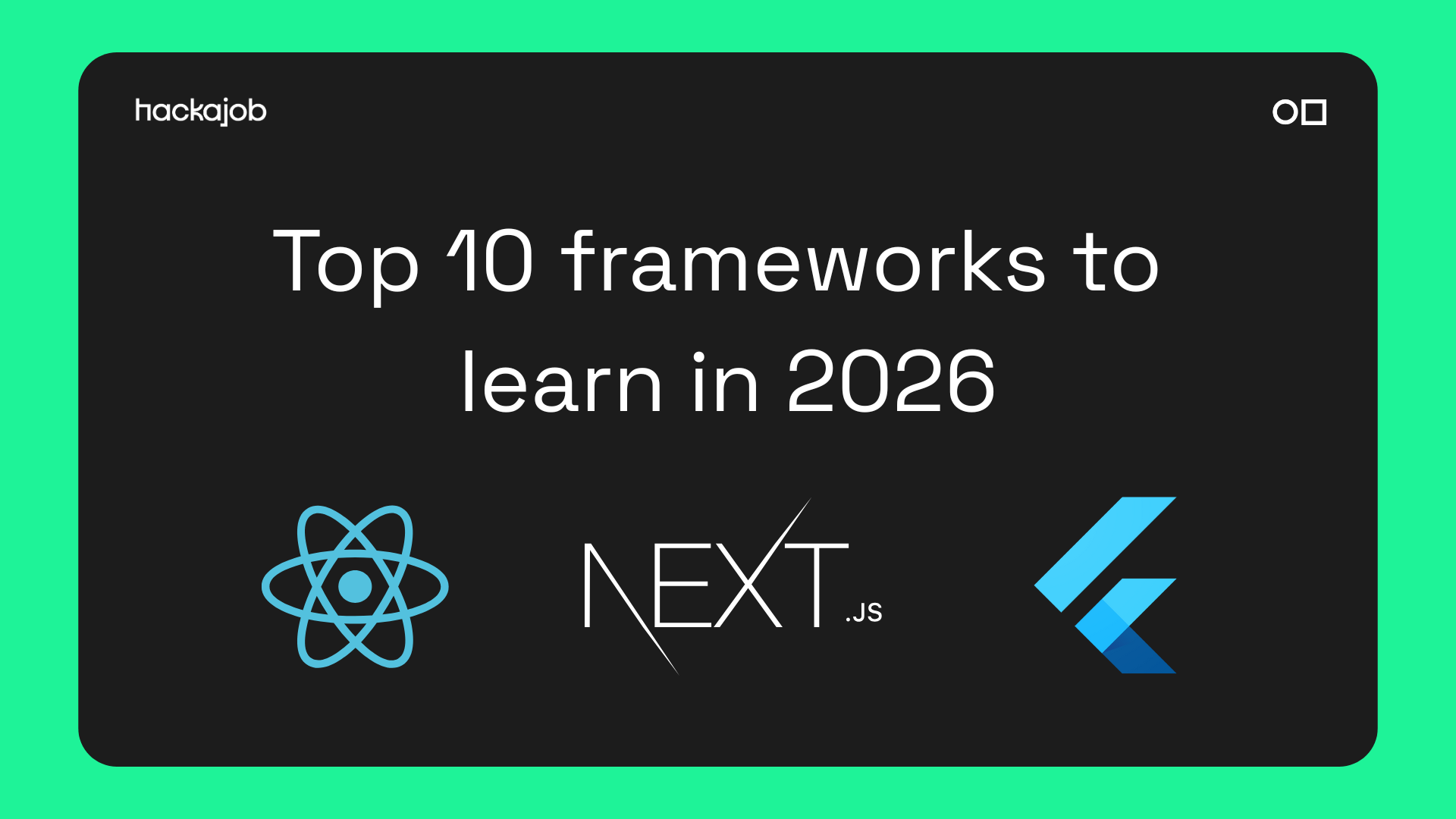The software development world is buzzing with possibilities, thanks to the rise of artificial intelligence (AI). From speeding up routine tasks to unlocking creative potential, AI is becoming every developer's secret weapon. Why now? Breakthroughs in machine learning, natural language processing (NLP), and automation have brought us tools that don't just help—they transform the way we build, test, and innovate.
As AI becomes an integral part of the development process, professionals in the field must stay informed about the latest trends, tools, and best practices. In this article, we’ll dive into the exciting ways AI is shaping software development.
What is AI and how is it transforming software development?
AI, in simple terms, is like giving machines a brain—teaching them to think, learn, and even create. In software development, AI covers everything from analyzing massive data sets to writing code that practically predicts what you’ll need next. Here’s a breakdown of how it’s being used today:
Machine learning: Think smarter systems that learn and improve as they go. This powers tools like predictive text and recommendation engines.
Natural language processing (NLP): The magic behind chatbots and search engines that actually understand what you're asking.
Computer vision: Ever wondered how facial recognition works? That’s computer vision, and it's opening doors to new kinds of applications.
These technologies aren't just add-ons; they’re reshaping workflows. Tasks like code debugging and testing, which used to eat up hours, are now being automated, giving developers more time to think big. Organizations that embrace AI can benefit from improved efficiency, faster time-to-market, and the ability to tackle complex problems with innovative solutions.

The benefits of leveraging AI in software development
AI in software development is more than a trend; it's a catalyst for delivering quality and efficiency in unprecedented ways. When integrated effectively, AI enhances code quality through sophisticated analysis and insights. Tools like GitHub Copilot leverage machine learning to suggest context-aware code completions, reducing the likelihood of bugs and promoting coding standards.
Accelerating development cycles is another significant advantage of AI. By streamlining processes such as testing and debugging, AI tools enhance workflow efficiency and minimize manual intervention. Continuous integration and deployment pipelines benefit from AI's ability to automate routine checks, enabling rapid iterations and reducing time-to-launch. This efficiency allows developers to dedicate more resources to innovation and tackling complex challenges.
User experience significantly benefits from AI's capacity to deliver personalized recommendations and intuitive interfaces. Algorithms process user data to adapt applications to individual preferences, enhancing satisfaction and engagement. This adaptability not only improves user interaction but also fosters long-term retention.
AI's predictive analytics optimize resource management and strategic planning. By anticipating project needs and potential hurdles, AI aids in informed decision-making, optimizing both time and resources. This capability empowers project managers to allocate tasks effectively and adjust plans proactively.
The potential for AI-driven solutions to address intricate problems is vast. AI enables developers to explore new possibilities, unlocking functionalities that were once out of reach.
Challenges and considerations for implementing AI in development
As AI becomes more integral to software development, challenges inevitably arise. Protecting data privacy and ensuring robust security measures are critical, considering AI's dependency on vast datasets that may include sensitive user information. Developers must implement advanced encryption protocols and establish comprehensive data management policies to safeguard information and comply with privacy laws. Ethical considerations demand transparency in AI data processes, ensuring users understand how their data is utilized.
Another significant challenge lies in addressing algorithmic bias and ensuring fairness in AI systems. Since machine learning models can reflect biases present in their training data, developers must proactively identify and correct these biases. This involves using diverse data sets and conducting thorough audits of algorithms to promote equitable decision-making outcomes. By prioritizing fairness, developers can enhance the credibility and acceptance of AI technologies.
Technical considerations such as data accuracy, model transparency, and scalability also require attention. Ensuring data quality is crucial for training AI models effectively, necessitating rigorous data cleaning and validation processes. Transparency in AI model operations allows developers to understand and refine decision-making processes, enhancing model accuracy. Scalability, meanwhile, ensures AI systems remain efficient and responsive under varying workloads, requiring adaptable and resilient infrastructure solutions.
Investing in AI talent is vital for overcoming these challenges. Organizations should focus on recruiting professionals with specialized AI expertise and providing ongoing training to current team members. Engaging in initiatives like hackathons and fostering a culture of continuous learning can drive innovation and equip teams with the skills needed to navigate AI complexities.
Navigating the regulatory landscape presents its own set of hurdles. Compliance with industry-specific guidelines and legal standards is essential when integrating AI technologies. Staying up-to-date with evolving regulations and collaborating with legal experts can help organizations anticipate challenges and ensure responsible AI adoption.
Real-world applications of AI in software development
The integration of AI into software development is not just theoretical; it manifests in numerous practical applications that redefine how development teams operate. Tools that assist with code creation, such as advanced IDE plugins, exemplify AI's role in enhancing coding efficiency. These tools leverage sophisticated algorithms to understand coding patterns and suggest improvements, reducing the cognitive load on developers. By offering tailored suggestions, they help maintain coding standards and accelerate the development process.
AI's role extends beyond coding into the domain of testing and quality assurance. Intelligent automation frameworks utilize AI to design and execute test scenarios autonomously, minimizing human intervention. These frameworks apply learning models to anticipate potential failure points, ensuring exhaustive test coverage and early identification of defects. This level of automation guarantees consistent quality across software releases, bolstering reliability and performance.
In the realm of collaboration and support, AI-driven platforms facilitate seamless communication and coordination among development teams. These platforms integrate machine learning to interpret user interactions and offer actionable insights, enhancing team productivity. By managing project documentation and updates, they ensure that teams remain aligned and projects progress smoothly.
Predictive analytics, driven by AI, revolutionizes project management by providing insightful data for estimation, resource allocation, and risk management. These analytics allow teams to foresee project milestones, optimize resource distribution, and proactively mitigate risks. Through data-driven decision-making, AI helps keep projects on track and within budget, promoting an agile development environment.
Security, a critical aspect of software development, benefits significantly from AI-enhanced monitoring systems that identify vulnerabilities and assess threat levels. These systems continuously analyze system behaviours and network traffic to detect anomalies, offering preemptive insights into potential security breaches. By providing comprehensive threat assessments, AI-driven security solutions fortify applications against cyber threats, ensuring robust protection.

Preparing your organization for the AI-driven future of development
To harness AI's potential, organizations need a tailored roadmap that aligns AI initiatives with strategic objectives. Begin by evaluating the organization's readiness for AI integration, focusing on areas where AI can create a substantial impact. This involves identifying specific applications where AI can streamline operations or introduce innovative solutions, ensuring alignment with both technological capabilities and business goals.
Fostering a culture that prioritizes data excellence is vital. Establishing a robust data ecosystem supports the scalability of AI solutions. Invest in advanced data management systems that ensure data quality, accessibility, and security. By embedding data literacy across teams, organizations can empower employees to leverage insights effectively and drive informed decisions.
Equipping your team with AI expertise is critical. Facilitate continuous learning opportunities through specialized AI training programs and collaborative projects. Encourage skill development in areas such as machine learning and data science to prepare teams for emerging AI challenges. This commitment to education helps bridge knowledge gaps and positions your organization at the forefront of technological advancements.
Engage with cross-functional teams and external experts to ensure AI implementations are ethical and aligned with industry standards. Collaborative efforts with thought leaders and stakeholders enhance the credibility of AI projects and ensure they adhere to regulatory and ethical guidelines. By fostering open dialogue and knowledge exchange, organizations can navigate the complexities of AI deployment responsibly.
Implementing iterative and flexible approaches, such as agile methodologies, allows organizations to remain adaptive to rapid technological changes. Encourage teams to experiment with AI solutions, learn from iterative cycles, and refine processes based on real-time feedback. This adaptability not only facilitates continuous improvement but also positions the organization to capitalize on new AI-driven opportunities in a dynamic market.
The transformative role of AI in shaping the future of software development
AI's integration into software development represents a new era, where it serves as a strategic partner to developers. By providing advanced analytics and supporting complex decision-making, AI enables developers to explore new dimensions of problem-solving and creativity. This synergy between AI and human intelligence fosters an environment where innovation thrives, unlocking potential previously unattainable through traditional methods.
AI's transformative impact extends to broadening access to software development, making it more accessible than ever before. With intuitive AI-driven interfaces and development platforms, individuals from diverse backgrounds can engage in software creation, contributing unique perspectives and ideas. This opens up opportunities for a wider range of contributors, fostering a vibrant and dynamic tech community that accelerates technological progress.
The evolving landscape of AI in development prompts a shift in organizational structures and skillsets. As AI takes on more analytical and operational tasks, there is a growing need for roles that emphasize strategic oversight, ethical considerations, and user-centric design. Organizations must cultivate a culture of adaptability and lifelong learning to navigate these changes effectively. Embracing AI's capabilities allows developers to tackle sophisticated challenges and generate groundbreaking solutions, propelling the industry into a future of unparalleled innovation.
Find your next role with hackajob
Discover your next opportunity with hackajob, where companies reach out to you directly for roles that align with your skills and preferences.
On our platform, you'll get full job descriptions and salary details upfront, empowering you to make informed decisions.
As a reverse marketplace, hackajob puts you in control—accept or decline requests from employers based on what interests you most.
Plus, our dedicated team is here to support you through the entire process, from interviews to offer negotiations.
Sign up today to get matched to your dream role.


